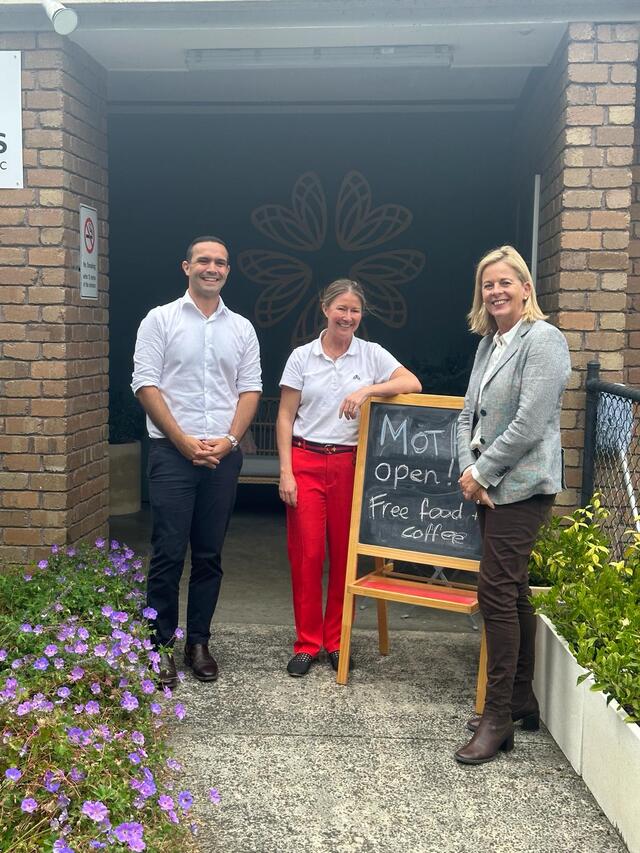
By Callum Ludwig
The availability of childcare remains dire in large parts of Australia with the Casey electorate and other outer-eastern areas no stranger to the struggle of families to find a place.
Using the research of the Mitchell Institute, the ABC published an investigative report ‘Mapping Australia’s childcare blackspots’ in 2022 that revealed that some areas of the Yarra Ranges had no access to a truly local childcare centre or were fighting for a place with 10 to 15 other children.
The situation does not appear to have gotten much better, with many families spending two years on waitlists for available spots.
Last month Casey MP Aaron Violi invited Shadow Minister for Early Childhood Education Angie Bell to meet with himself and the founder of the Mums of the Hills group Belinda Young and Mr Violi said he has a significant concern about availability.
“We were hearing some really heartbreaking stories of families having to put their children on wait lists and if they haven’t put them on within weeks of being born, not being able to get them into facilities within their community, that’s limiting their ability to work and just function without the support of family,” he said.
“It’s definitely an issue across the whole electorate, but there’s no doubt that our more regional, rural and non-suburban areas are more impacted in terms of the Dandenong Ranges and the Upper Yarra, but within our suburban areas, it’s still very challenging.”
The Mount Dandenong-Olinda region had between 15.43–15.87 children competing for a childcare place locally, while the Wandin-Seville area also had areas where between 7.7 and 17.98 children per available place.
Ms Young said it doesn’t feel like it has gotten better for local families.
“I’ve heard of people that instead of celebrating when they’ve found out that they’re pregnant, telling their family and loved ones that they are expecting, the first people they call are the childcare centres, because they know that it’s at least a two -year wait to get into long daycare,” she said.
“It’s a really difficult situation because we are in a very tough financial situation at the moment and people are looking to go back to work earlier or do additional hours just to cover the cost of their mortgages and daily expenses and when they can’t find childcare they are unable to do that.”
Even in more suburban areas of the Outer East such as Lilydale, Mooroolbark, Montrose and Kilsyth, the data indicated there were over twice as many children as available childcare places in their local areas.
Mr Violi said a lot of young families are moving out to the Yarra Valley because it’s a beautiful place to raise a child but issues with supply and affordability of childcare have been created.
“One of my criticisms of the government’s policy is while it’s good that they’re looking to provide relief and make it easier for families, if you put a subsidy in without increasing supply, you’re driving more demand than that increase in supply and it’s going to push the price up, and that’s exactly what we’ve seen,” he said.
“I’ve heard stories of families, they’ve had an increase of $13 a day above the subsidy in one example, and it’s not a criticism of childcare providers as such as they are struggling with increased costs like everybody, but I’m even hearing stories of childcare providers that are charging people a non-refundable deposit just to get on the waitlist.”
Mt Evelyn could welcome two new childcare centres in the near future: one is being constructed at 1A Gear Avenue after getting planning permit approval in 2023 while another is being slated for Hereford Road at the current site of Pro Futsal. Montrose is welcoming a new childcare centre near the historic Alta Dena home following a decision from VCAT to issue a permit while Woori Yallock will welcome a state-run centre in either 2027 or 2028; one of 50 being delivered across the state from 2025 to 2028.
Ms Young said we know it’s not as simple as just creating more childcare centres but any changes will have benefits for parents, particularly mums hoping to return to work.
“The childcare centres themselves are struggling to find staff so there is a real need to increase or reduce costs that are involved with training new staff and certainly providing as many incentives to encourage people into the sector without the costs being passed on to families,” she said.
“When parents have got two children that require care and the older child has got care, that doesn’t necessarily guarantee that a sibling will get care at the same place, so what we’re finding is that children are being placed in separate centres and adding 30-40 minutes to the commute,”
“Everybody’s situation is different and not every family needs or wants to access childcare but it is disproportionately affecting women because statistically, we are more likely to be the caregivers of young children and not only does it reduce their economic opportunities, but they’ve lost that connection with your work colleagues or with their area and the people they usually connect with when they can’t access childcare.”






